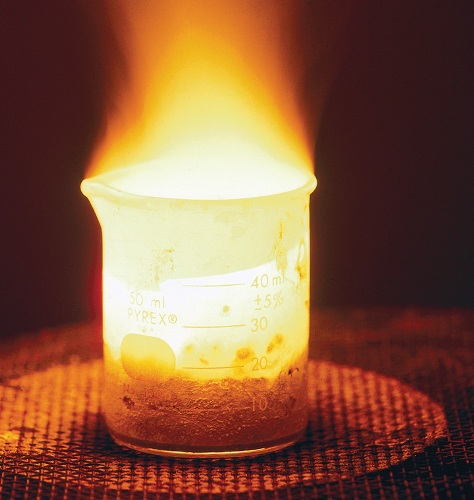10 Facts about Chemical Reactions
Facts about Chemical Reactions inform you with the transformation of chemical substances to other chemical substances. If you check the definition of chemical reaction based on the classical view, this reaction does not cause any change on the nuclei. But it involves with the breaking or forming of chemical bonds on the atoms of the chemical substances. It also changes the position of electrons. Get other interesting facts about chemical reactions below:
Facts about Chemical Reactions 1: nuclear chemistry
If you are interested to learn about the chemical reaction which involves with radioactive elements, you have to check nuclear chemistry. It is considered as a branch of chemistry.
Facts about Chemical Reactions 2: the reactant or reagent
When you study chemical reaction, the reactants or reagents are considered as one of the important terms. It is used to call the substances involved in the reaction.
Facts about Chemical Reactions 3: the chemical change
The chemical change on the substance occurs when it has chemical reaction. The new substance usually features the properties from the different reagents or reactants. Find facts about Cerium here.
Facts about Chemical Reactions 4: the chemical equations
The chemical equation is used to describe the chemical reaction. It shows you the initial material, reaction condition, intermediate product and end product.
Facts about Chemical Reactions 5: the temperature
The chemical reaction can occur due to the increased temperature. Breaking the bonds of the atoms will be easier to do when it has more thermal energy or heat.
Facts about Chemical Reactions 6: the types of reactions
There are two types of chemical reactions. It can be spontaneous or non spontaneous one. The non spontaneous chemical reaction will need the free energy. In spontaneous reaction, it does not require any input of free energy to go forward.
Facts about Chemical Reactions 7: the example of the non spontaneous chemical reaction
There are various examples of non spontaneous reaction. It can be seen on the photosynthetic process of the plants. It uses sunlight. The usage of battery is also a non spontaneous reaction for it has external electrical power source.
Facts about Chemical Reactions 8: protein enzymes
Protein enzymes are often used as the catalyst during the chemical reaction inside the body of the living organisms. It can increase the rate of the chemical reaction.
Facts about Chemical Reactions 9: the examples of chemical reactions
There are various types of chemical reactions. They include fermentation, combustion in fire, radioactive decays, nuclear reactions, and many more. Get facts about chemical weathering here.
Facts about Chemical Reactions 10: Greek philosophers
Greek philosophers had described the theories of transformation by stating that the substance was composed for four elements. Those were earth, air, water and fire.
Do you have any comment on facts about chemical reactions?







